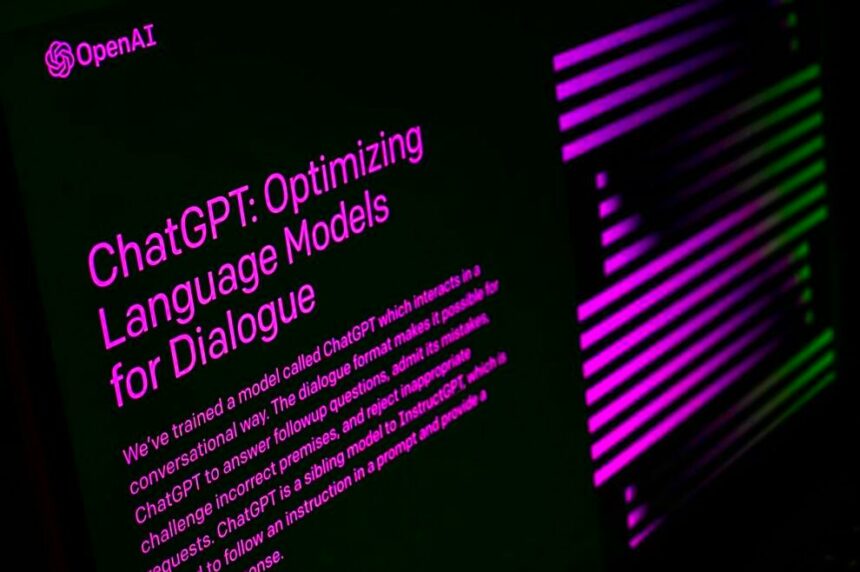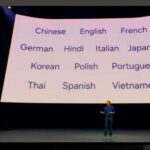An area within the broader field of artificial intelligence (AI), called generative AI takes this a step further and focuses on teaching machines how to write human-like text. One of the biggest in this field is ChatGPT (I am sure you have heard about it, if not then visit here).
In the following, I will elaborate on ChatGPT’s abilities and how it could be used as well as discuss ethical issues related to this level of natural language processing capability.
The Science Behind Generative AI
AI models trained on large corpora of text and code, such as ChatGPT, belong to the former. This training enables them to understand language structure, patterns and hence produce human reading text (high-quality output), translate languages from one to another or even write different types of creative content like stories essays etc. Also, they can provide answers based on facts you are looking for in an informative way….
Below we will try to have an overview of the key processes :
- Natural Language Processing (NLP): Methods AI models can use to learn about the complexities of human language, e.g., grammar, syntax and semantics;
- Machine Learning: Algorithms: They work essentially by learning from enormous datasets to find patterns and relationships in the data that would produce similar outputs.
- Deep Learning: A branch of machine learning using artificial neural networks with architecture loosely modeled on the brain, capable of pattern recognition and generation.
An powerfull language model (ChatGPT)
ChatGPT by OpenAI (a nonprofit research company backed with funding from Microsoft) has been getting a lot of attention as well for features such as:
- Conversational Fluency: Open-ended and informative conversations like human-like interactions can be done by ChatGPT.
- Text Generation: From generating poems, code and scripts, musicals all the way down to your email copy.
- Question Answering: You can ask ChatGPT to access and process information to write long, detailed replies that teach.
The Future Applications of ChatGPT
The possibilities of ChatGPT are huge in all sectors:
- Education: Adaptive Learning Tests, Automated Essay Grading & Language Acquisition Tools.
- Customer Service: For instance, chatbots driven by ChatGPT could offer round-the-clock customer services, respond to the frequently asked questions and handle simple problems.
- Content Creation: Sales copy, video scripts or even creative writing prompts for human authors
- Accessibility Tools: Text-to-speech (for reading by visual impaired users or for people unable to read output due a speech impairment)
Ethical considerations and societal impact: your responsibility
What the use cases of ChatGPT tell us is that there are indeed pros to develop such systems. But these new technologies also raise ethical concerns and could have societal implications that need to be navigated:
- Bias and Discrimination: For example, models trained on biased data can perpetuate the same societal biases in their outputs.
- Job displacement: Humans perform things that robots would be able to automate, taking work away from people: a significant point of contention if applied for ChatGPT’s powers.
- Disinformation and Misinformation: The ability to synthesize real-to-the-eye type text sounds alarm bells over the spread of fake news in our society.
- Transparent Explainable: Explainability of AI models is critical for trust and ethical use.
Next Up: Ethical implementation and cooperation between AI & human agents
Generative AI models like ChatGPT that are capable of shifting language across bodies, environments and domains make the need for a responsible approach critical:
- Addressing Bias: To sum it all up, the most effective way to create fairer AI is in mitigating bias from training data and creating ways that help make our AIs more ethical.
- Human Oversight: AI is a tool to extend human capabilities and not replace them. It will need human oversight and ethical framework.
- Transparency and Education: The ability to explain how any AI model works and the general public understanding of what an AI can or cannot do are two factors that must change in order for applications like this to advance.
Conclusion: Generative AI in the Future
From a text generator standpoint, ChatGPT is leaps and bounds ahead. They may be the key that unleashes a whole new era in any number of areas all while promoting responsible use and development, which ensures ethical technical advances designed to make our lives easier.
FAQs
What is ChatGPT?
OpenAI is the organization that has developed a large, established language model dubbed ChatGPT. A conversational AI or talkbot is a computer program which conducts the conversation either text,voice enabled and be able to response query deligiently.
How does ChatGPT work?
ChatGPT is a generative AI model, which means it learns from massive amounts of text data. This allows it to understand language patterns and then use those patterns to create new text, translate languages, write different kinds of creative content, and answer your questions in a comprehensive way.
What can ChatGPT do?
ChatGPT has a wide range of capabilities, including:
- Having conversations: ChatGPT can engage in open-ended, informative conversations that mimic real human interaction.
- Generating text: It can create different creative text formats, like poems, code, scripts, musical pieces, and even emails.
- Answering your questions: ChatGPT can access and process information to answer your questions in a comprehensive and informative way.
How can ChatGPT be used?
ChatGPT has the potential to be used in many different ways, such as:
- Education: Providing personalized learning experiences, automating tasks like grading essays, and developing language learning tools.
- Customer service: Chatbots powered by ChatGPT could offer 24/7 customer support, answer frequently asked questions, and resolve basic issues.
- Content creation: Generating marketing copy, scripts for videos, or even creative writing prompts for human authors.
- Accessibility tools: Assisting visually impaired users with reading or people with speech disabilities by converting text to speech.
Are there any risks associated with ChatGPT?
Like any powerful technology, ChatGPT comes with some potential risks:
- Bias: AI models trained on biased data can perpetuate existing societal biases in their outputs.
- Job displacement: ChatGPT’s capabilities could automate tasks currently performed by humans, raising concerns about job displacement.
- Misinformation: The ability to generate realistic-looking text raises concerns about the spread of misinformation and disinformation.
How can we ensure ChatGPT is used responsibly?
There are a few key things to consider for the responsible use of ChatGPT:
- Addressing Bias: We need to find ways to mitigate bias in training data and develop methods for fairer AI models.
- Human Oversight: AI should be used as a tool to augment human capabilities, not replace them. Human oversight and ethical frameworks are essential.
- Transparency and Education: Increasing transparency about how AI models work and educating the public about their capabilities and limitations is key.
ChatGPT and the Generative AI Future?
ChatGPT is a milestone in generation AI. By using its potential responsibly, we can pave the way for new opportunities in a wide range of disciplines without forgetting to care about an ethical progression and human-centric application of this powerful technology.
For More Information On ChatGPT?
Now, you may not find exactly what ChatGPT AI is or how it works in public forum like this but there are many other great posts out where people have written about generative AI and its applications. Good research can be done with support in articles from reliable sources, here a glimpse of the type.











